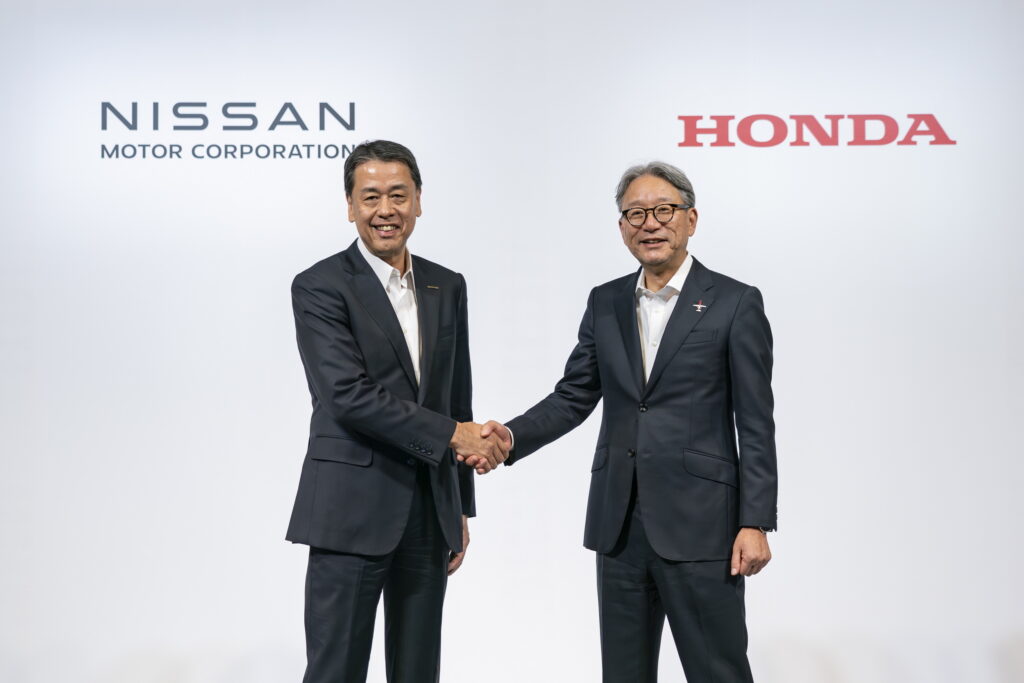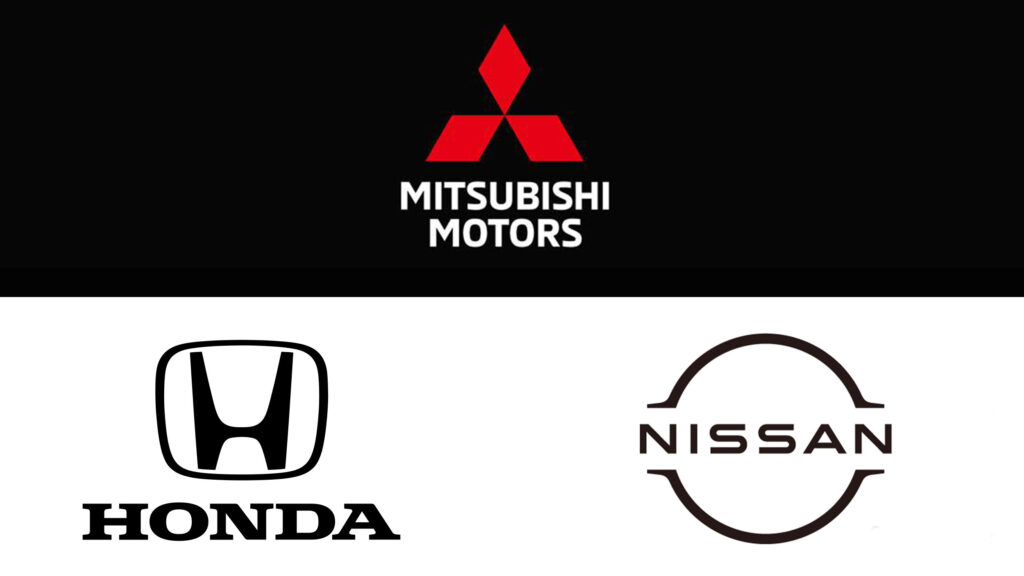- Mitsubishi joins the Honda-Nissan alliance to collaborate on electric vehicles and software.
- The alliance aims to compete with Chinese automakers and achieve carbon neutrality faster.
- Honda and Nissan will co-develop platforms for next-generation software-defined vehicles.
Mitsubishi confirmed the rumors about joining the newly formed Honda-Nissan alliance, with the three companies signing a memorandum of understanding earlier today. The trio of Japanese automakers will collaborate on software development and share the R&D costs of electrification. Furthermore, Nissan and Honda agreed on supplementing models in their respective lineups in certain regions around the world.
The original agreement between Honda and Nissan was signed in March 2024, but now Mitsubishi has stepped into the partnership. The mutual announcement suggests that the addition of a third partner will allow “further synergies” and create “new business opportunities”.
More: Honda And Mitsubishi Join Forces For EV Leasing And Battery Recycling In Japan
The goal is to achieve carbon neutrality and move closer to a zero-traffic-accident society faster. This can be achieved by sharing the costs of environmental / electrification technologies, and software development, making them more competitive against Chinese rivals.
Mitsubishi President and CEO, Takao Kato, said: “Nissan and Honda’s discussions on a possible partnership have progressed, and we have decided to participate in this framework. Collaboration with partners is essential in today’s automotive industry, which is undergoing rapid changes due to technological innovations such as electrification and intelligence. We believe that we can discover new possibilities in a variety of fields through collaboration among the three companies.”

Nissan And Honda Agree On Joint Research Projects
Together with the confirmation of the Honda-Nissan-Mitsubishi partnership, there was a separate announcement about the progress of discussions between Nissan and Honda, which expanded their collaboration.
The two companies agreed on joint research projects, including developing platforms for next-gen software-defined vehicles (SDVs). Based on the results of the research phase, which is expected to be completed in approximately one year, Nissan and Honda will consider the possibility of mass production. In terms of software, the focus will be autonomous driving, connectivity, and AI, which are deemed crucial for the automotive industry.
More: Toyota, Mazda, Subaru Develop New High-Tech Engines For Diverse Fuels
The partnership will also include shared batteries and key EV components such as motors, inverters, and e-axles for future production models. Furthermore, the joint venture between Honda and LG Energy Solution might supply lithium-ion batteries to Nissan in North America after 2028.
Nissan and Honda will also consider sharing models. The companies have reached a basic agreement on the shared models and the regions they will be offered to. However, there was no mention of a timeline for the debuts of the badge-engineered vehicles. Finally, the two brands study the possibility of collaborating in energy services in Japan, including charging.
The tie-up between Honda, Nissan, and Mitsubishi, effectively splits the Japanese automotive landscape in two, against the rival group formed by Toyota, Daihatsu, Suzuki, Subaru, and Mazda.




